
Barber: The Hidden Gem of Curaçao
Barber is a charming town located in the northwestern part of Curaçao, offering a blend of natural beauty, cultural heritage, and serene tranquility. Known for its lush landscapes and historical significance, Barber is a place where you can escape the hustle and bustle of city life and immerse yourself in a slower, more peaceful pace. The region is rich with flora and fauna, making it a haven for nature lovers. The Christoffel National Park is a must-visit, with its trails leading to the highest point in Curaçao, providing breathtaking views of the island. The park is also home to a wide variety of wildlife, including exotic birds and unique plant species. For an even deeper connection with nature, visit the picturesque Shete Boka National Park, where you can explore dramatic coastal landscapes and hidden coves. Barber's cultural heritage is equally captivating. The town is dotted with historic buildings and traditional houses, reflecting its colonial past. The vibrant local markets offer a taste of authentic Curaçaoan life, where you can find handmade crafts, local produce, and delicious street food. Don't miss the opportunity to visit the impressive Church of Sint Willibrordus, a stunning example of Dutch Caribbean architecture. Whether you're looking to hike through verdant landscapes, explore historical sites, or simply relax and soak up the local culture, Barber in Curaçao promises a memorable and enriching experience.
Local tips in Barber
- Rent a car to explore the area easily, as public transport options are limited.
- Visit Christoffel National Park early in the morning to avoid the midday heat.
- Bring plenty of water and sun protection when hiking in the national parks.
- Try the local 'pastechi' pastries at the market for an authentic snack experience.
- Check the opening hours of attractions, as they may vary and some are closed on certain days.
Barber: The Hidden Gem of Curaçao
Barber is a charming town located in the northwestern part of Curaçao, offering a blend of natural beauty, cultural heritage, and serene tranquility. Known for its lush landscapes and historical significance, Barber is a place where you can escape the hustle and bustle of city life and immerse yourself in a slower, more peaceful pace. The region is rich with flora and fauna, making it a haven for nature lovers. The Christoffel National Park is a must-visit, with its trails leading to the highest point in Curaçao, providing breathtaking views of the island. The park is also home to a wide variety of wildlife, including exotic birds and unique plant species. For an even deeper connection with nature, visit the picturesque Shete Boka National Park, where you can explore dramatic coastal landscapes and hidden coves. Barber's cultural heritage is equally captivating. The town is dotted with historic buildings and traditional houses, reflecting its colonial past. The vibrant local markets offer a taste of authentic Curaçaoan life, where you can find handmade crafts, local produce, and delicious street food. Don't miss the opportunity to visit the impressive Church of Sint Willibrordus, a stunning example of Dutch Caribbean architecture. Whether you're looking to hike through verdant landscapes, explore historical sites, or simply relax and soak up the local culture, Barber in Curaçao promises a memorable and enriching experience.
When is the best time to go to Barber?
Iconic landmarks you can’t miss
Landhuis Ascencion
Discover the captivating history and serene beauty of Landhuis Ascencion, a historic museum in Barber, Curaçao, showcasing the island's colonial past.
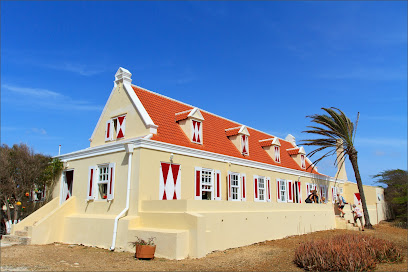
Marshe di Barber
Experience the vibrant culture and authentic flavors of Curaçao at Marshe di Barber, a bustling market in the heart of Barber.
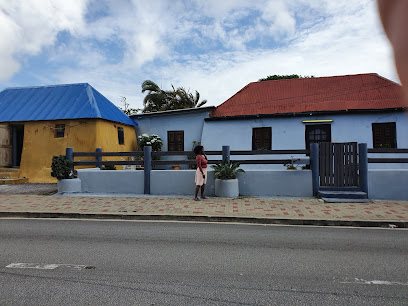
Hòfi Pastor (Curaçao)
Discover Curaçao's natural beauty and ancient history at Hòfi Pastor, a tranquil park near Barber, home to the island's oldest tree.
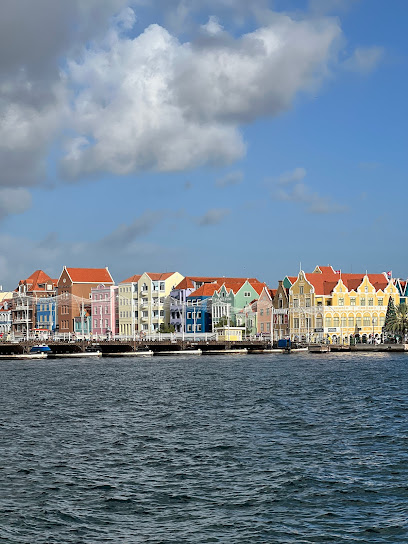
Barber Curaçao
Discover the colorful charm of Barber Curaçao, a shopping mall that blends local culture with international flair, perfect for tourists exploring the island.
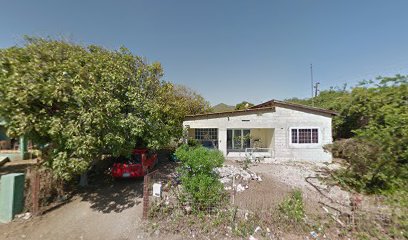
Landhuis Barber
Explore the rich history and architectural beauty of Landhuis Barber, a heritage site in Barber, Curaçao, reflecting the island's colonial past.

Unmissable attractions to see
Queen Emma Bridge
Discover the iconic Queen Emma Bridge in Willemstad, a historical landmark offering breathtaking views and a vibrant cultural experience.
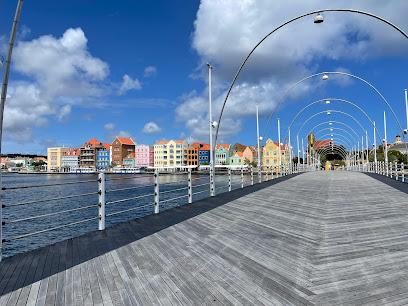
Mambo Beach
Discover the sun-kissed shores of Mambo Beach in Curaçao, where adventure meets relaxation amidst stunning natural beauty.
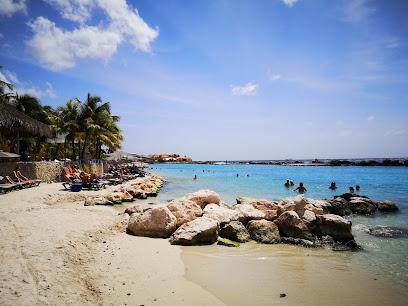
Cas Abao Beach
Experience the breathtaking beauty of Cas Abao Beach in Curaçao, a perfect destination for relaxation, snorkeling, and savoring exquisite local cuisine.
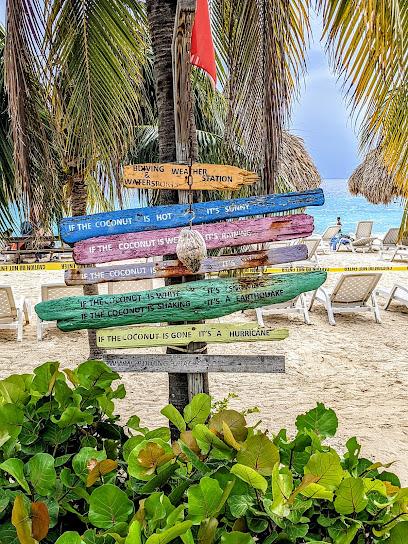
Curaçao Sea Aquarium
Explore the magical underwater world at the Curaçao Sea Aquarium, where marine life comes to life through interactive exhibits and engaging shows.
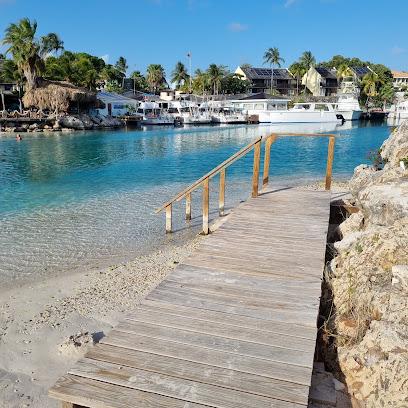
Kokomo Beach
Discover the captivating beauty of Kokomo Beach in Willemstad, Curaçao, where relaxation meets adventure amidst stunning tropical scenery.
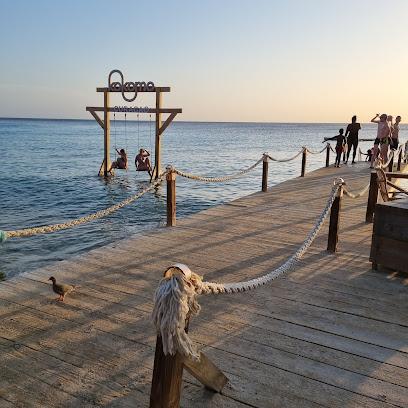
Landhuis Chobolobo
Experience the rich history and flavor of Curaçao at Landhuis Chobolobo, home of the famous Blue Curaçao liqueur.
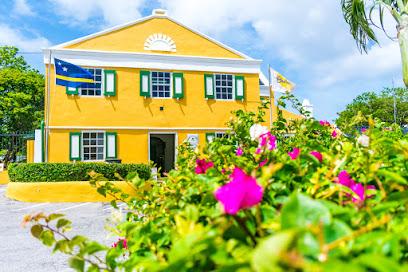
Grote Knip
Discover the enchanting beauty of Grote Knip, a serene beach paradise in Curaçao known for its stunning turquoise waters and vibrant marine life.
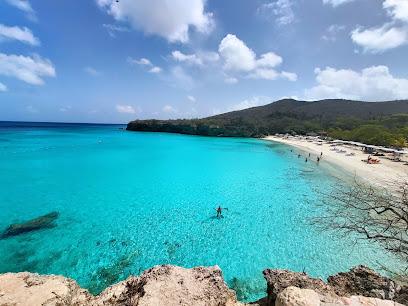
Hato Caves
Discover the hidden beauty of Hato Caves in Curaçao, where nature's artistry and rich history await every visitor.
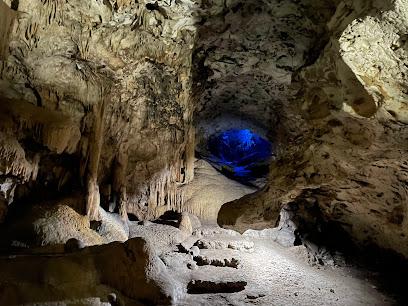
Playa Grandi
Experience the serene beauty and vibrant marine life at Playa Grandi, a top beach destination in Sabana Westpunt, Curaçao.
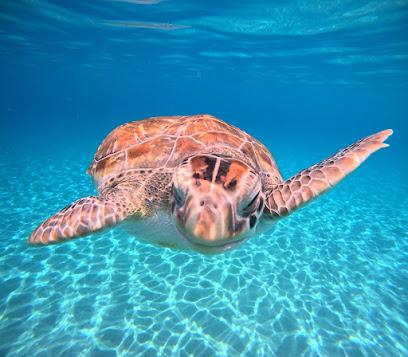
Christoffel National Park
Experience the breathtaking landscapes and rich biodiversity of Christoffel National Park, a must-visit destination in Curaçao for nature lovers and adventurers.
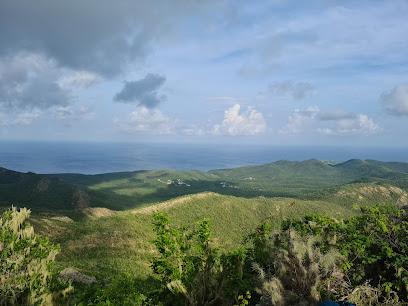
Playa Lagun
Experience the breathtaking beauty of Playa Lagun, a serene beach in Curaçao, perfect for swimming, snorkeling, and relaxation amidst stunning coastal views.
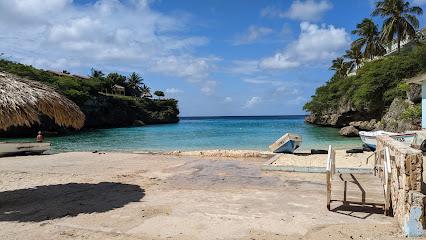
Shete Boka National Park
Explore the breathtaking landscapes and vibrant wildlife of Shete Boka National Park, a must-visit natural wonder in Curaçao.
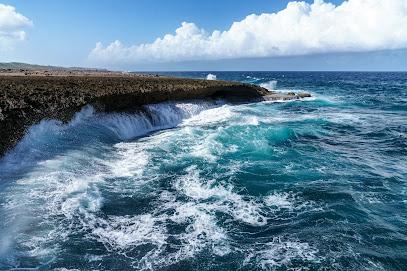
Daaibooi Beach
Discover the idyllic charm of Daaibooi Beach in Curaçao, where pristine sands meet vibrant marine life for an unforgettable tropical escape.
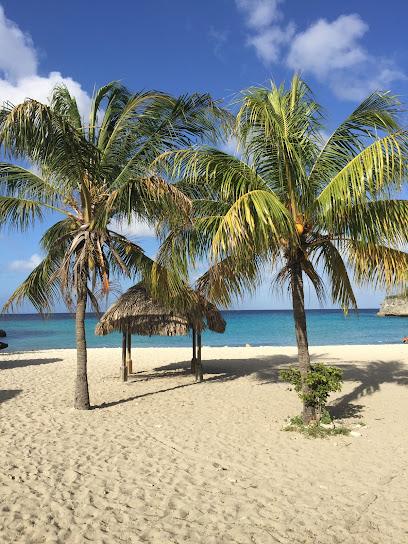
Brión Square
Explore Brión Square in Willemstad, Curaçao - a vibrant cultural hub filled with art, music, and unique local experiences.
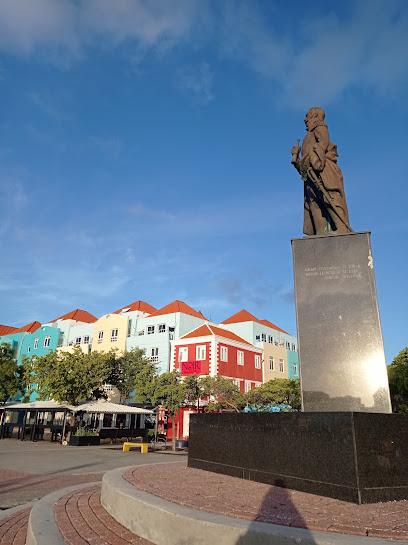
Museum Kura Hulanda
Explore the vibrant history of Curaçao at Museum Kura Hulanda, where art and artifacts tell the story of the island's rich cultural heritage.
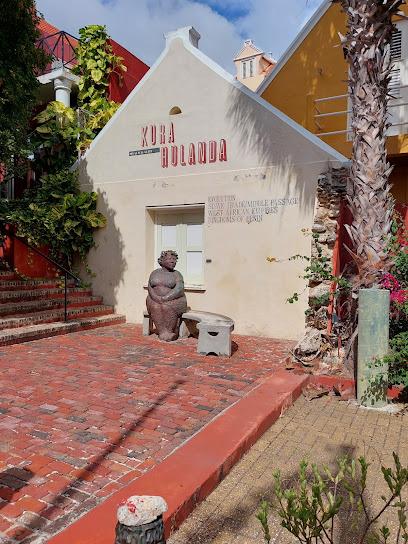
Essential places to dine
Zanzibar Beach & Restaurant
Experience culinary excellence at Zanzibar Beach & Restaurant in Jan Thiel, Curaçao—where every meal comes with breathtaking ocean views.
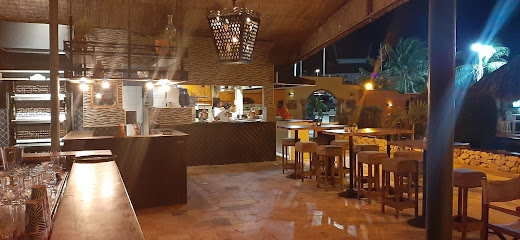
Restaurant & Café Gouverneur De Rouville
Discover exquisite local flavors at Restaurant & Café Gouverneur De Rouville in Willemstad—where culinary tradition meets breathtaking views.
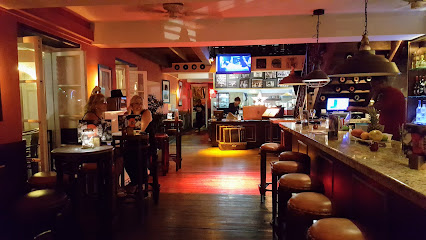
Iguana Café
Experience authentic Curaçaoan flavors at Iguana Café along Willemstad's iconic Handelskade waterfront.
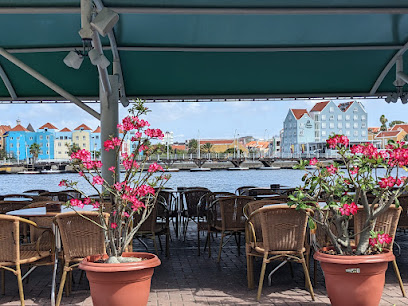
Hemingway
Discover Hemingway in Curacao - A lively restaurant and bar with delicious cuisine and vibrant live music on the picturesque waterfront.
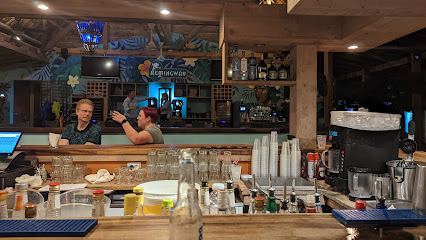
La Bohème Curaçao
Experience the vibrant flavors of Caribbean cuisine at La Bohème Curaçao – a culinary gem in Willemstad perfect for breakfast, brunch, or lunch.
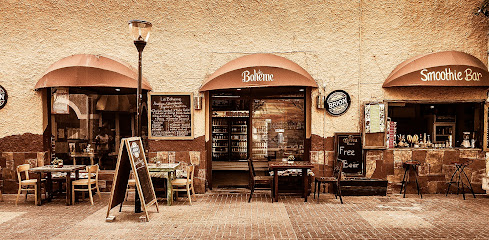
Fort Nassau
Discover exquisite dining at Fort Nassau in Willemstad - where history meets gourmet cuisine amidst breathtaking Caribbean views.
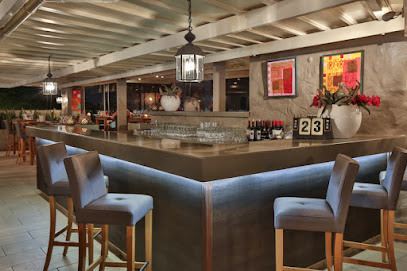
Steak & Ribs
Savor mouthwatering steaks and ribs at Steak & Ribs in Willemstad – where flavor meets ambiance in the heart of Curaçao.
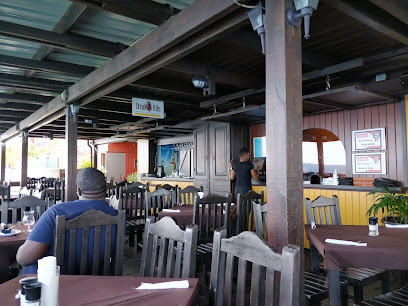
Tony Roma's
Experience the best of American cuisine at Tony Roma's in Willemstad - from barbecue to fresh seafood, savor every moment.
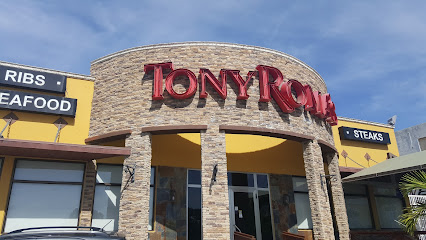
Jaanchie Restaurant
Experience authentic Caribbean cuisine at Jaanchie Restaurant in Sabana Westpunt – a culinary treasure in beautiful Curaçao.
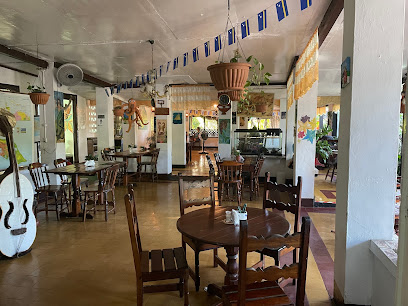
Larry's – Grill & Bar
Experience a delightful fusion of local and international cuisine at Larry's Grill & Bar in Willemstad, Curaçao – a culinary paradise waiting to be explored.
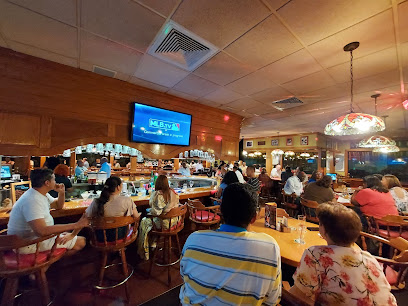
The Ribs Factory
Discover the culinary delights at The Ribs Factory in Willemstad, Curaçao - where succulent ribs meet vibrant island vibes.
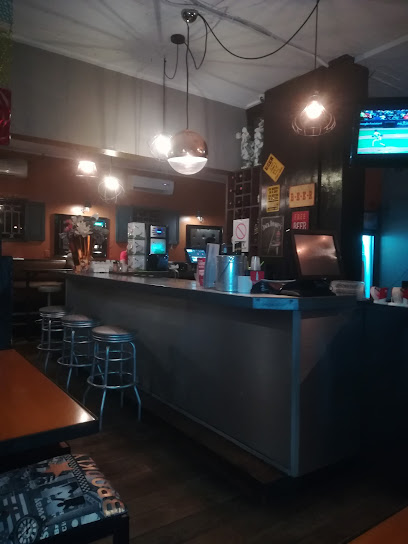
Number Ten Curaçao
Experience the best of Caribbean cuisine at Number Ten Curaçao – where tradition meets modern dining in an inviting atmosphere.
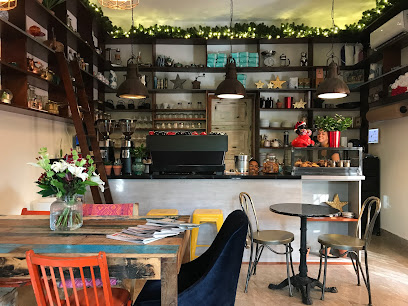
The Niffo Huts
Experience vibrant flavors and tropical vibes at The Niffo Huts in Sint Michiel, Curaçao - your ultimate dining destination.
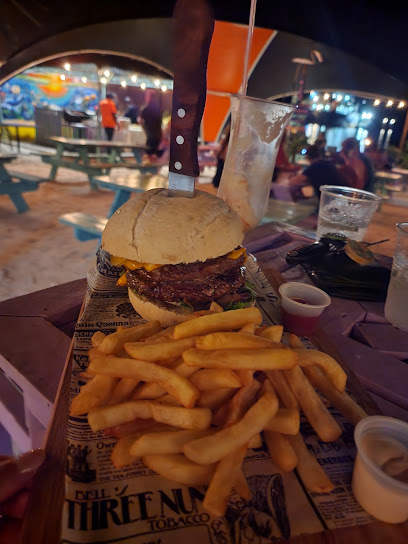
Boca 19 Curaçao
Experience exquisite Caribbean cuisine at Boca 19 Curaçao, where every meal is paired with breathtaking ocean views.
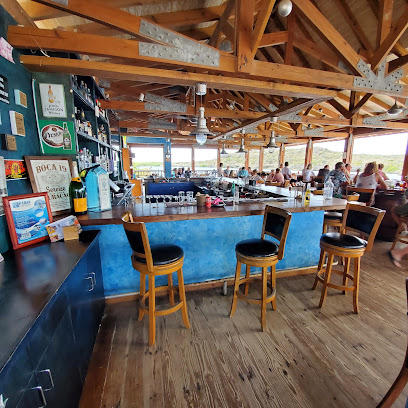
Bochincha Container Yard
Experience the lively ambiance and diverse flavors at Bochincha Container Yard, Aruba's unique dining destination housed in colorful shipping containers.
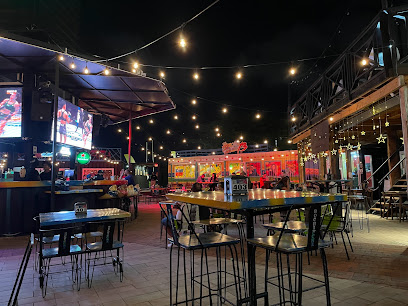
Markets, malls and hidden boutiques
Marshe di Barber
Experience the heart of local culture at Marshe di Barber – a vibrant market in Barber, Curaçao, offering fresh produce, handmade crafts, and culinary delights.
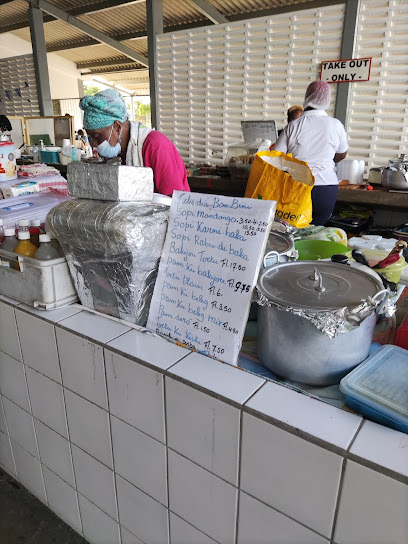
Sunshine & Fresh Minimarket
Explore the local flavors at Sunshine & Fresh Minimarket, your go-to supermarket in Barber, Curaçao for fresh produce and unique culinary delights.
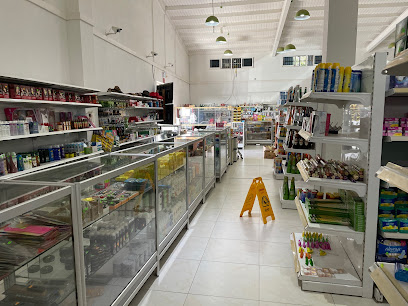
Barber Minimarket
Discover the local flavors and essentials at Barber Minimarket, a charming grocery store in Barber, Curaçao, perfect for every tourist's needs.
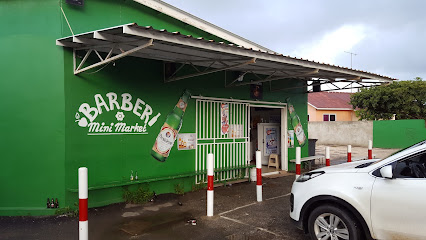
Britt Shop
Explore the vibrant Britt Shop in Curacao Hato International for unique gifts and local treasures that capture the spirit of the island.
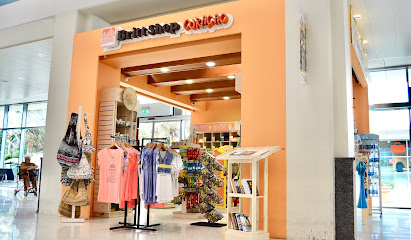
Unique point
Explore Unique Point in Willemstad for a distinctive selection of men's fashion that embodies the essence of Curacao's vibrant culture.
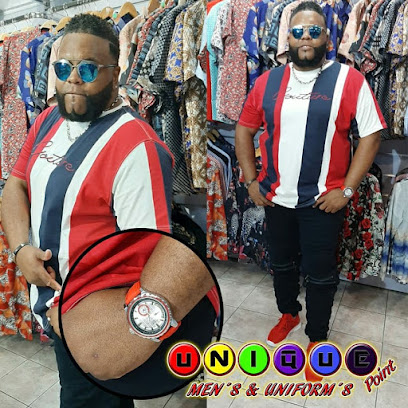
Chino Barber
Explore Chino Barber, a shopping gem in Curaçao, where local culture meets diverse retail options for an unforgettable experience.
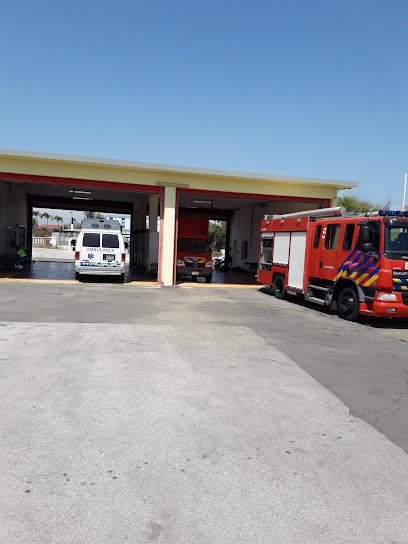
Tire Service Barber
Explore Curaçao with confidence; Tire Service Barber provides top-notch tire care ensuring your vehicle is ready for every adventure.
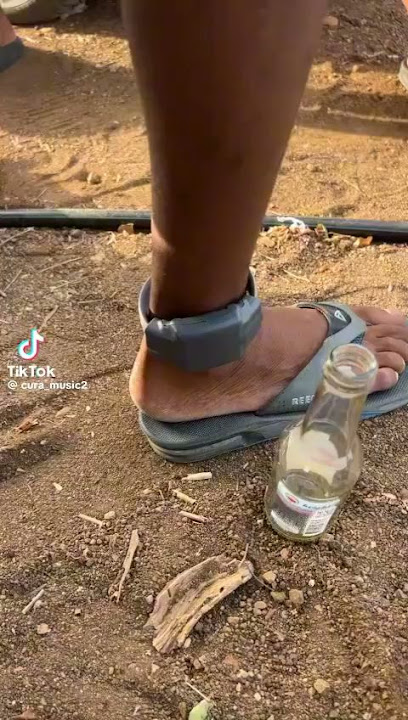
Dolce Vita Boutique
Explore the stylish offerings of Dolce Vita Boutique in Willemstad, where local fashion meets unique designs for the discerning traveler.

It's a new beginning
Discover authentic Curacaoan crafts and souvenirs at 'It's a New Beginning' gift shop in Willemstad, an essential stop for every traveler.
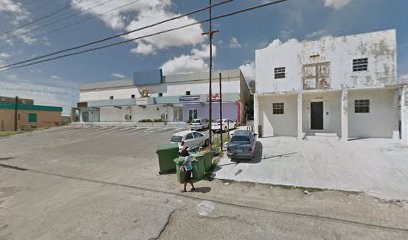
Botika Barber
Experience local health and culture at Botika Barber, the charming pharmacy in Curaçao offering essential products and friendly service.
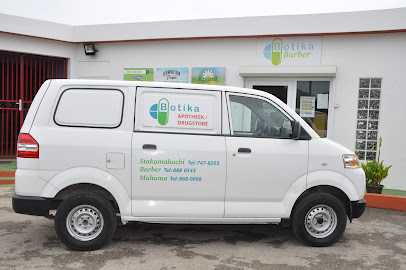
Kòrsou Rock
Explore Kòrsou Rock, a vibrant beauty supply store offering local products and an immersive cultural experience for every traveler.

Peng Hong Minimarke
Explore Peng Hong Minimarke in Barber, Curaçao for a taste of local grocery shopping and island culture.
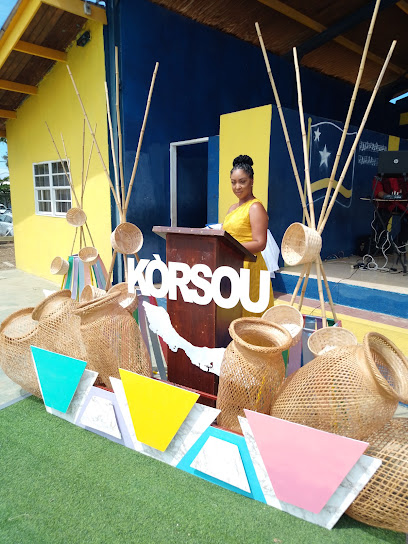
Barber Curaçao
Experience the tranquility of Barber Curaçao with cozy holiday apartments, local culture, and stunning landscapes for an unforgettable getaway.
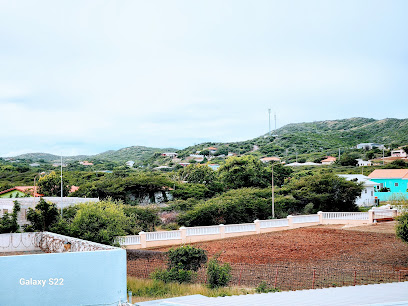
Men's Shelter Barbershop
Experience the perfect blend of grooming and artistry at Men's Shelter Barbershop in Willemstad, Curaçao—where every visit is a celebration of style.
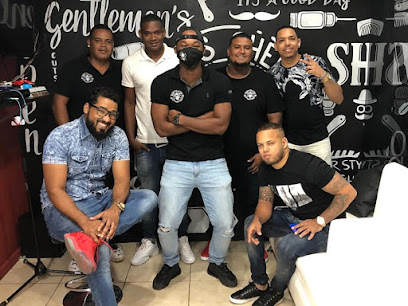
BEAUTiQ
Experience relaxation and rejuvenation at BEAUTiQ, your ultimate destination for health and beauty during your travels.
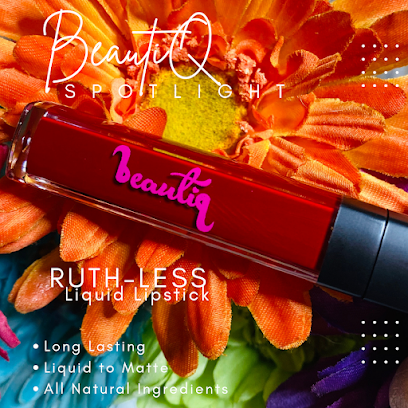
Essential bars & hidden hideouts
Daaibooi Beach Bar
Discover the laid-back charm of Daaibooi Beach Bar in Willemstad, Curaçao, where sun, sand, and delicious cocktails await.
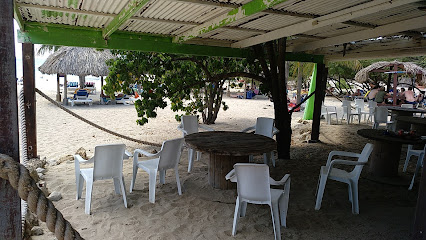
Netto Bar
Discover the lively atmosphere of Netto Bar in Willemstad, where refreshing cocktails and friendly locals create an unforgettable experience.
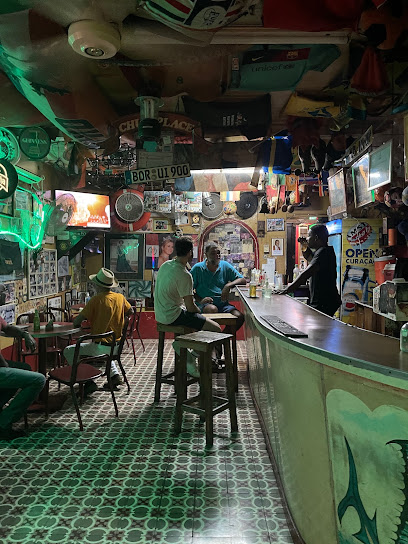
BlackJack Curaçao - Eat. Drink. Enjoy
Discover BlackJack Curaçao, a lively sports bar and lounge in Willemstad, offering delicious food, crafted cocktails, and an inviting atmosphere ideal for socializing.
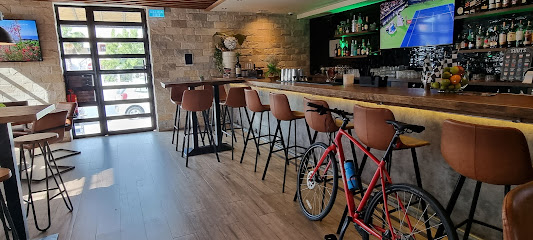
Le Mem Sports Club
Discover the vibrant atmosphere of Le Mem Sports Club in Willemstad, the ultimate sports bar experience with billiards, lively events, and delicious drinks.
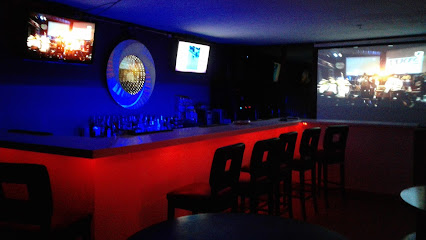
Doo-shee cocktail bar
Experience the vibrant nightlife at Doo-shee Cocktail Bar in Willemstad, where handcrafted cocktails meet the lively spirit of Curaçao.
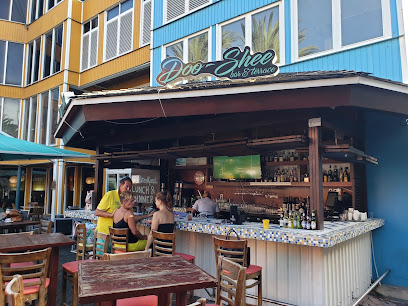
Curadise Bar Restaurant
Experience the vibrant nightlife of Willemstad at Curadise Bar Restaurant, where delicious drinks and a lively atmosphere await.
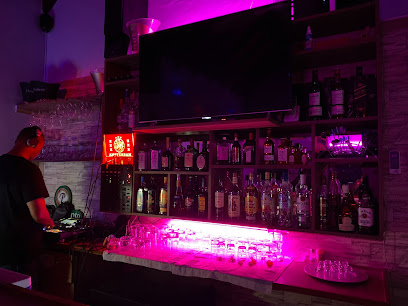
The World Best Mojito Bar
Discover the refreshing flavors of The World Best Mojito Bar in Punda, Willemstad, where every sip transports you to a tropical paradise.
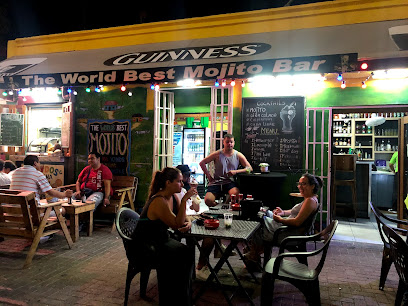
The Hills
Discover The Hills in Willemstad - a vibrant bar and lodging destination where relaxation meets the lively spirit of Curaçao's nightlife.
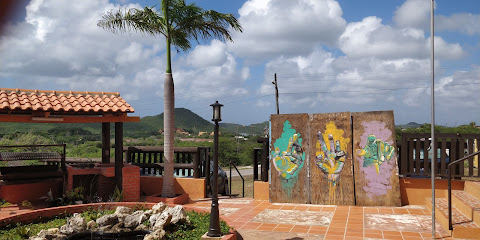
GAZE Bar & Lounge Curaçao
Experience the vibrant nightlife at GAZE Bar & Lounge in Curaçao, where cocktails, live music, and an inclusive atmosphere await.
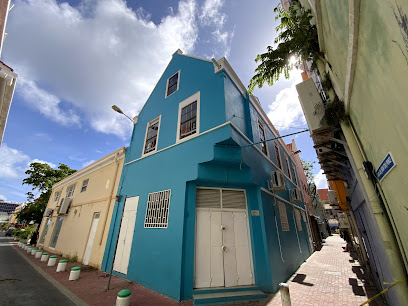
BAR P Curaçao
Experience the lively spirit of BAR P Curaçao, where cocktails and camaraderie come together in a vibrant nightlife setting.
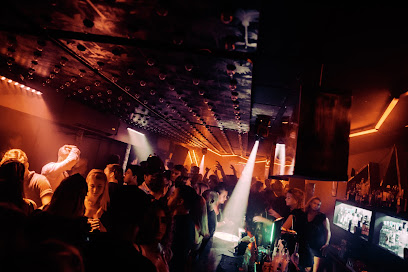
4th of july Snack
Experience authentic Curaçaoan flavors at 4th of July Snack in Barber, a cozy restaurant serving delicious local snacks and meals.
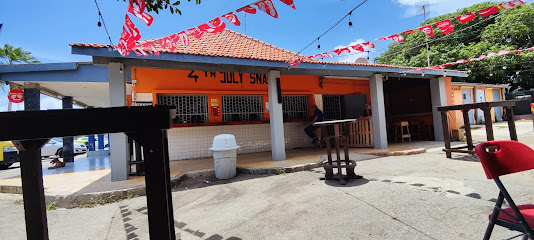
Rif fort bar
Discover the vibrant atmosphere of Rif Fort Bar in Willemstad, where Caribbean culture and refreshing drinks create the perfect getaway.
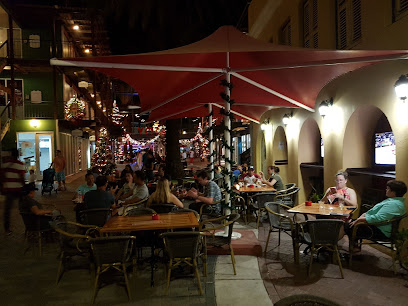
Tabú Bar & Bites Curacao
Experience the vibrant nightlife and flavors of Curaçao at Tabú Bar & Bites, a must-visit cocktail bar and restaurant in Willemstad.
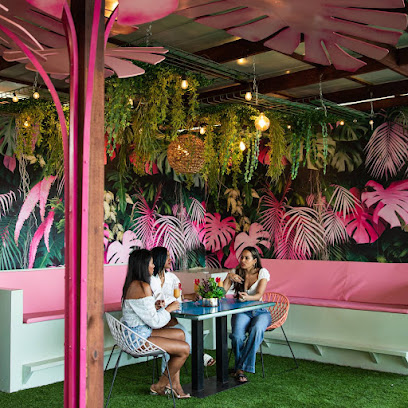
Porto Mari restaurant & bar
Experience the vibrant culinary scene of Curaçao at Porto Mari Restaurant & Bar, where delicious Caribbean cuisine meets stunning seaside views.
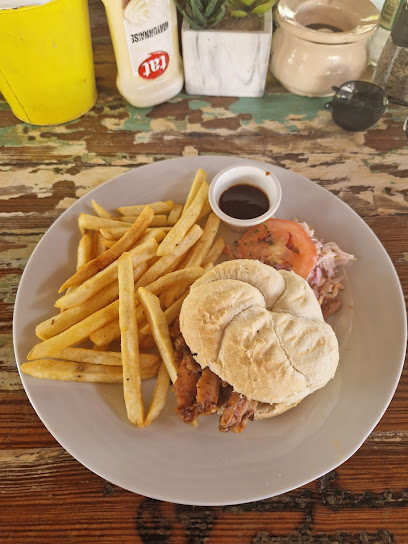
Local Phrases
-
- HelloBon dia
[bon dee-ah] - GoodbyeAyo
[ah-yo] - YesSi
[see] - NoNo
[no] - Please/You're welcomePor fabor
[por fa-bor] - Thank youDanki
[dahn-kee] - Excuse me/SorrySkuze mi
[skoo-zay mee] - How are you?Kon ta bai?
[kohn tah bah-ee] - Fine. And you?Bon. I boso?
[bon. ee boh-soh?] - Do you speak English?Bo papia Ingles?
[boh pah-pee-ah een-glehs?] - I don't understandMi no ta kompronde
[mee noh tah kom-prohn-deh]
- HelloBon dia
-
- I'd like to see the menu, pleaseMi ke mira e menu, por fabor
[mee keh mee-rah eh meh-noo, por fa-bor] - I don't eat meatMi no kome karni
[mee noh koh-meh kar-nee] - Cheers!Salud!
[sah-lood] - I would like to pay, pleaseMi ke paga, por fabor
[mee keh pah-gah, por fa-bor]
- I'd like to see the menu, pleaseMi ke mira e menu, por fabor
-
- Help!Yudami!
[yoo-dah-mee] - Go away!Bai for di aki!
[bah-ee fohr dee ah-kee] - Call the Police!Yama polis!
[yah-mah poh-lees] - Call a doctor!Yama un dokter!
[yah-mah oon dohk-tehr] - I'm lostMi ta perdi
[mee tah pehr-dee] - I'm illMi ta malu
[mee tah mah-loo]
- Help!Yudami!
-
- I'd like to buy...Mi ke kumpra...
[mee keh koom-prah] - I'm just lookingMi ta solamente mira
[mee tah soh-lah-mehn-teh mee-rah] - How much is it?Kuantu esaki ta?
[kwan-too eh-sah-kee tah?] - That's too expensiveEsaki ta muchu karo
[eh-sah-kee tah moo-choo kah-roh] - Can you lower the price?Bo por baha e prijs?
[boh por bah-hah eh prees?]
- I'd like to buy...Mi ke kumpra...
-
- What time is it?Kuantu ora ta?
[kwan-too oh-rah tah?] - It's one o'clockTa un ora
[tah oon oh-rah] - Half past (10)Mitad di dies
[mee-tahd dee dees] - MorningMañana
[mah-nyah-nah] - AfternoonAtardi
[ah-tahr-dee] - EveningAnochi
[ah-noh-chee] - YesterdayAyer
[ah-yehr] - TodayAwe
[ah-weh] - TomorrowMañana
[mah-nyah-nah] - 1un
[oon] - 2dos
[dohs] - 3tres
[trehs] - 4cuater
[kwah-tehr] - 5sinku
[seen-koo] - 6seis
[sehs] - 7siete
[syeh-teh] - 8ocho
[oh-choh] - 9nuebe
[nweh-beh] - 10diez
[dyehs]
- What time is it?Kuantu ora ta?
-
- Where's a/the...?Unda tin ...?
[oon-dah teen ...?] - What's the address?Kiko e adres ta?
[kee-koh eh ah-drehs tah?] - Can you show me (on the map)?Bo por mustra mi (riba e mapa)?
[boh por moos-trah mee (ree-bah eh mah-pah)?] - When's the next (bus)?Kuando ta bini e siguiente (bus)?
[kwan-doh tah bee-nee eh see-gwee-ehn-teh (boos)?] - A ticket (to ....)Un tiki (pa ....)
[oon tee-kee (pah ....)]
- Where's a/the...?Unda tin ...?
History of Barber
-
Before the arrival of Europeans, the area now known as Barber was inhabited by the Arawak and Caquetio Indigenous peoples. They thrived on the island, practicing agriculture, fishing, and crafting pottery. The region's fertile soil and access to freshwater sources made it a prime location for settlement.
-
In 1499, Spanish explorers arrived in Curaçao, marking the beginning of European influence in the region. Although the Spanish initially saw little value in the island due to its lack of precious metals, they did establish some control. Barber, along with other parts of Curaçao, became a waypoint for ships and a place for resources like fresh water and wood.
-
By the early 17th century, the Dutch West India Company had taken control of Curaçao, including Barber. The Dutch transformed the island into a center for trade and commerce. Barber became a focal point for agriculture, particularly in the cultivation of crops like maize, beans, and yucca, which were essential for sustaining the local population and the Dutch settlers.
-
During the 18th and 19th centuries, Curaçao's economy became heavily reliant on plantations. Barber was home to several large plantations, where enslaved Africans were forced to work under harsh conditions. This period left a lasting impact on the cultural and social fabric of the community, influencing everything from local cuisine to religious practices.
-
In 1863, the Netherlands abolished slavery in its colonies, including Curaçao. The abolition of slavery was a monumental event in Barber's history, leading to significant social changes. Freed slaves in Barber established their own communities, often on the very lands where they had once been enslaved. This era saw the growth of a more diverse and resilient community, with freed individuals contributing to the development of local culture and economy.
-
The 20th century brought modernization and development to Barber. Infrastructure improvements, such as roads and public facilities, connected Barber more closely with the rest of Curaçao. The community also saw the establishment of schools and healthcare services, improving the quality of life for its residents. Despite these changes, Barber has managed to retain its unique cultural heritage.
-
Barber is celebrated for its rich cultural heritage, which is evident in its local festivals, music, and cuisine. The annual harvest festival, ‘Seú,’ is a vibrant event that showcases traditional music, dance, and food, reflecting the agricultural roots of the community. Additionally, Barber is known for its traditional architecture, with many buildings reflecting the Dutch colonial style.
-
Barber is surrounded by stunning natural landscapes, including the Christoffel National Park. The area is a haven for ecotourism, offering activities like hiking, bird watching, and exploring caves. The park is home to the island’s highest peak, Mount Christoffel, and a diverse array of flora and fauna, making Barber a perfect destination for nature enthusiasts.
Barber Essentials
-
Barber is located in the northwestern part of Curaçao. The nearest airport is Hato International Airport, approximately 30 kilometers away. From the airport, you can take a taxi, which is the most convenient option, or rent a car for more flexibility. Public buses also run from the airport to various parts of the island, including Barber, but they are less frequent.
-
Within Barber, the primary modes of transportation are taxis and rental cars. While the town is small and many attractions are within walking distance, a rental car can be useful for exploring surrounding areas. Public buses are available but may not be as reliable or frequent. Bicycles are also a popular way to get around for short distances.
-
The official currency in Curaçao is the Netherlands Antillean Guilder (ANG), but US dollars are widely accepted. Credit cards are accepted in most hotels, restaurants, and shops, but it is advisable to carry some cash for smaller establishments and street vendors. ATMs are available in Barber, so withdrawing cash is convenient.
-
Barber is generally a safe destination for tourists, but it is always wise to take standard precautions. Avoid walking alone at night in poorly lit areas and keep an eye on your belongings in crowded places. While Barber itself doesn't have specific high-crime areas targeting tourists, it's important to stay vigilant and aware of your surroundings.
-
In case of an emergency, dial 911 for immediate assistance. There are local police stations and medical facilities in Barber. It is recommended to have travel insurance that covers medical emergencies. For minor health issues, pharmacies are available where you can purchase over-the-counter medications.
-
Fashion: Do wear lightweight, breathable clothing due to the tropical climate. Avoid overly revealing outfits, especially in more traditional areas. Religion: Do respect local customs and traditions. When visiting religious sites, dress modestly and remove hats. Public Transport: Do be patient and respectful with drivers and other passengers. Don't be loud or disruptive. Greetings: Do greet people with a friendly 'Bon dia' (Good day). A handshake is also common. Eating & Drinking: Do try local dishes and accept food offered by locals graciously. Don't waste food, as it is considered disrespectful.
-
To experience Barber like a local, visit the weekly market where you can buy fresh produce and local crafts. Engage with locals, who are often friendly and willing to share stories about the town's history and culture. Don't miss exploring the Christoffel National Park for hiking and wildlife spotting. For a unique experience, visit the nearby Shete Boka National Park, known for its stunning coastal views and natural blowholes.
Nearby Cities to Barber
-
Things To Do in Soto
-
Things To Do in Sabana Westpunt
-
Things To Do in Westpunt
-
Things To Do in Sint Michiel
-
Things To Do in Julianadorp
-
Things To Do in Willemstad
-
Things To Do in San Nicolas
-
Things To Do in Savaneta
-
Things To Do in Santa Cruz
-
Things To Do in Pos Chiquito
-
Things To Do in Paradera
-
Things To Do in Sero Blanco
-
Things To Do in Tanki Leendert
-
Things To Do in Oranjestad
-
Things To Do in Noord






